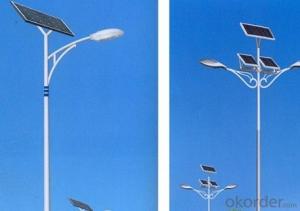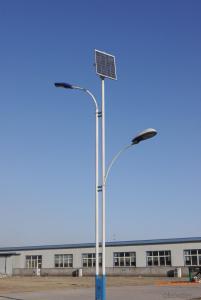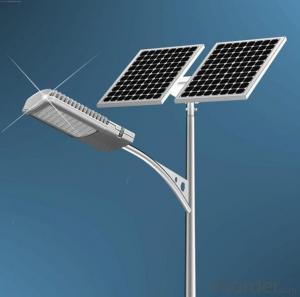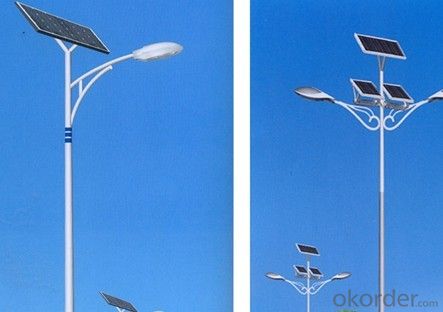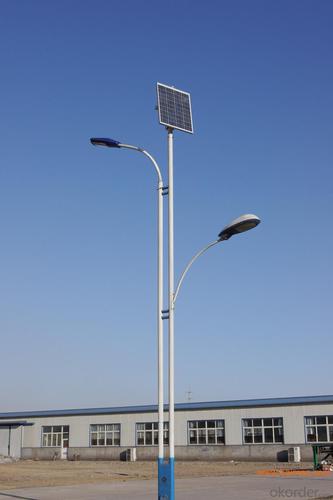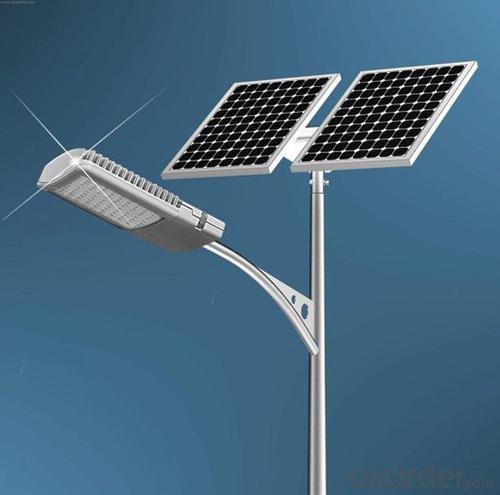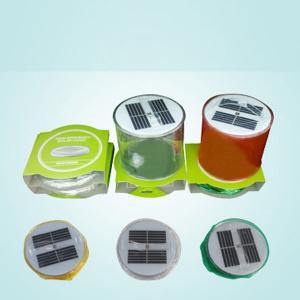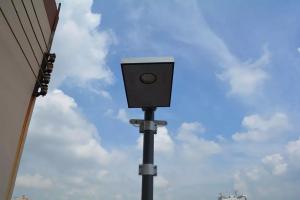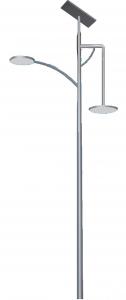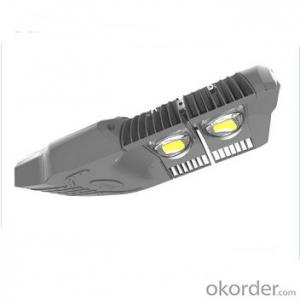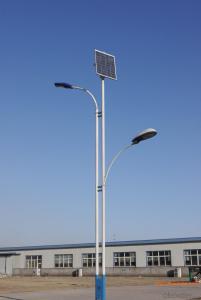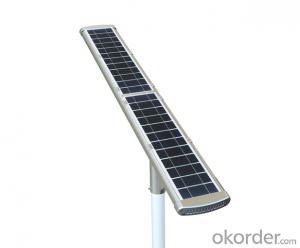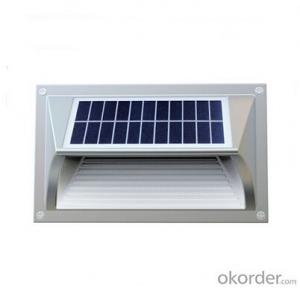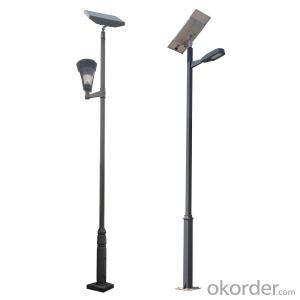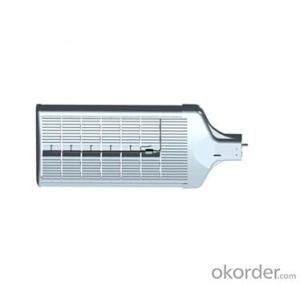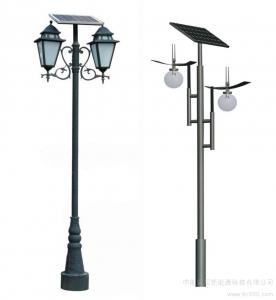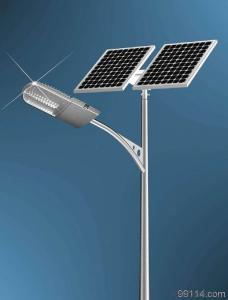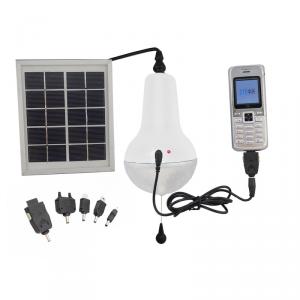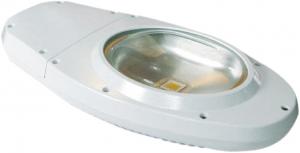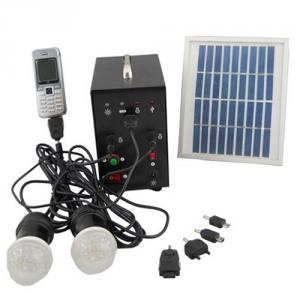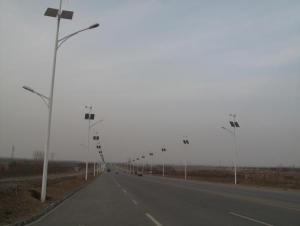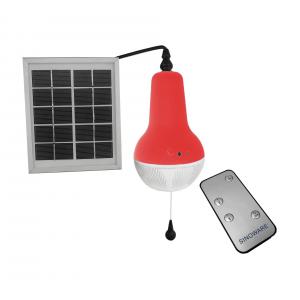Outdoor Motion Solar Light - Solar Street Light Environmental Friendly, Cost Saving, Top Class Quality 80R
- Loading Port:
- Ningbo
- Payment Terms:
- TT OR LC
- Min Order Qty:
- 1 set
- Supply Capability:
- 5000 set/month
OKorder Service Pledge
OKorder Financial Service
You Might Also Like
Step 1 – Find area in need of street lights
The first thing to figure out is the length of road in need of street lights. This can be a small entrance road only a couple hundred of feet long to miles of streets through an area. Does the area currently have any type of lighting available? What is the reason for needing street lights in this area?
Step 2 – Find out if electric is available
Is the electrical grid already nearby or would you need to call in the power company to bring in electrical lines? If the electric needs to be brought to the area, how much is this going to cost? Depending on how far the grid electric is from the location of the needed lighting, this can be quite expensive.
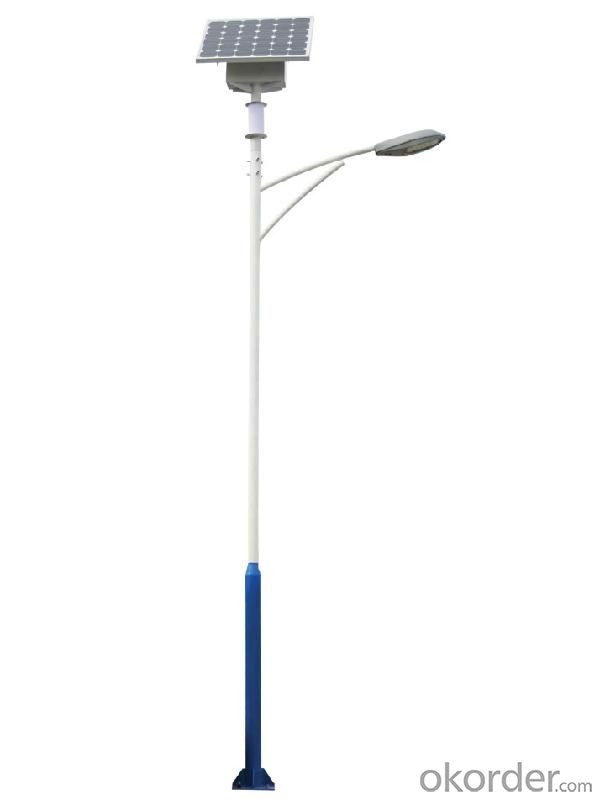
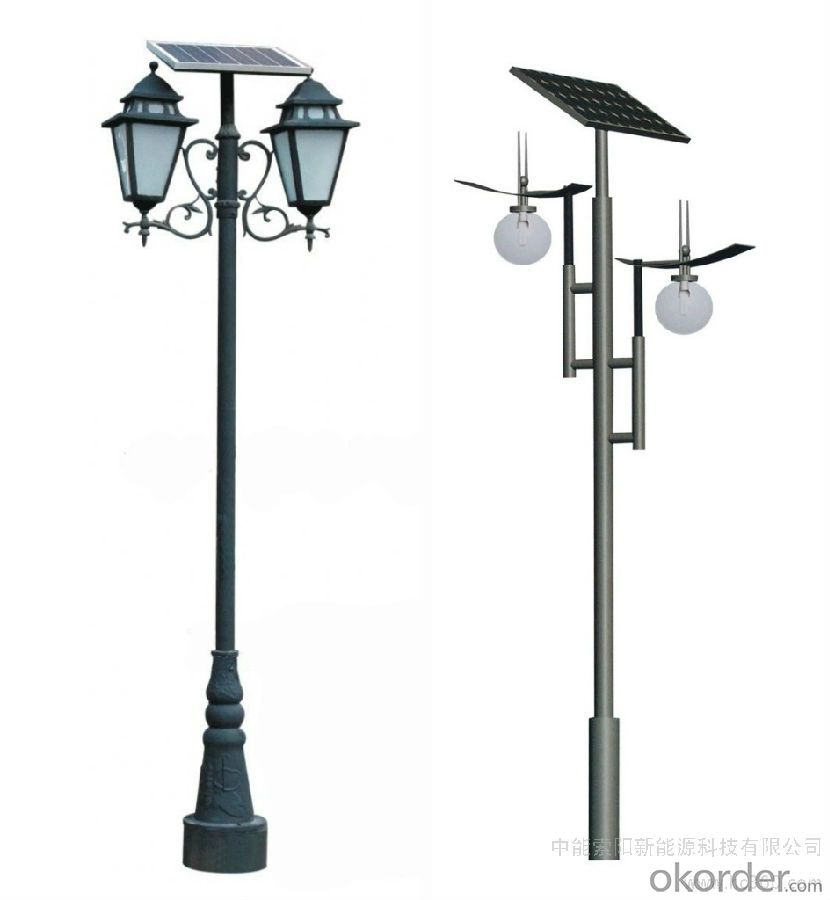
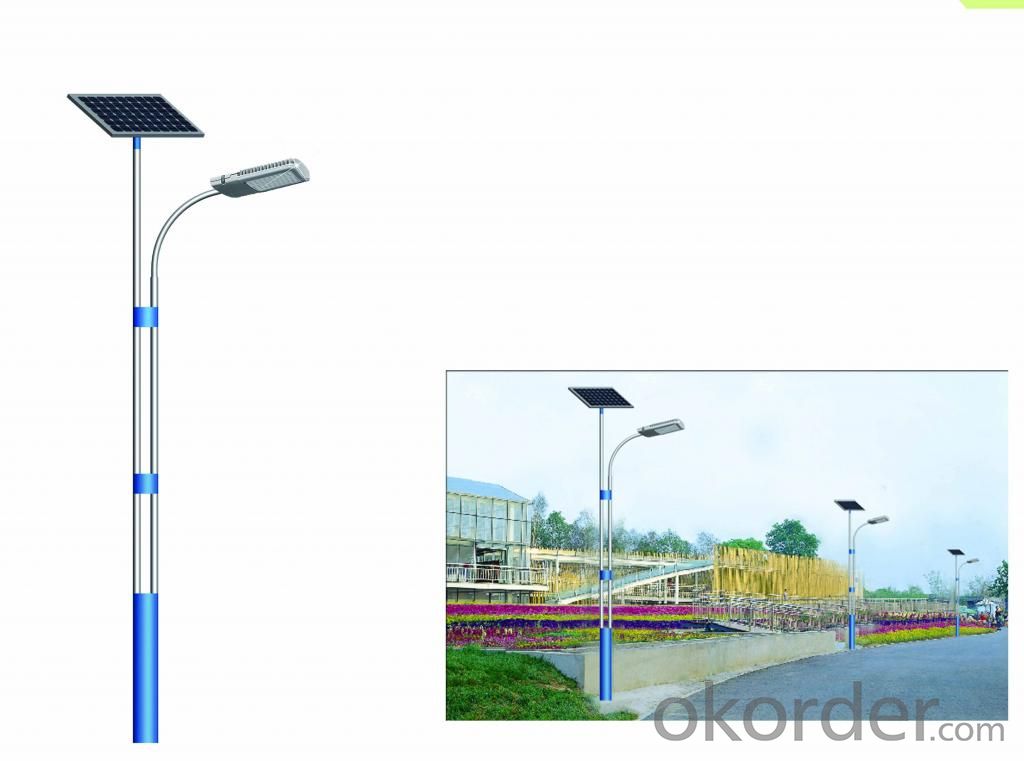
Step 3 – Determine the lighting requirements
How much lighting is needed on the street? Do the lights need to be dark sky compliant? Do the street lights need to run from dusk to dawn or for only a specified number of hours at night? Are the street lights able to dim in the middle of the night and still provide enough lighting? These questions need to be answered before you can decide on how many lights you will need to complete the project.
Step 4 – Find all alternatives
Solar power street lights are an option to traditional electrical lights. Solar street lights do not need the electrical grid to be brought in as they are self-contained units that provide their own electric.The best lighting solution by using lower amounts of power, better optics, dimming features where needed, and cost less in an overall solution.
Step 5 – Contact companies for quotes
The last step after gathering the above information is to contact companies for quotes. Just like with anything else, get multiple quotes and weigh the pros and cons of every company and situation. The lowest quote is not always the best, so make sure to do your research on companies and products before you submit a purchase order.
If you take your time, do your research, and gather needed requirements, your next street lighting project will be a success. Never be afraid to ask a lot questions, they may save you time and money in the long run.
- Q: Can solar lights be used for outdoor camping showers?
- Yes, solar lights can be used for outdoor camping showers. Solar lights are designed to harness and store solar energy, which can be used to power various devices, including showers. By placing solar lights strategically around the camping shower area, they can provide sufficient illumination during nighttime showers, ensuring safety and convenience in outdoor camping settings.
- Q: Can solar lights be used for outdoor markets or food stalls?
- Solar lights are a great choice for outdoor markets or food stalls. They are designed to work outdoors and can provide plenty of lighting, especially at night. Not only are they energy-efficient, but they are also cost-effective because they don't need electricity from the grid. This means you can easily install them without complicated wiring or electrical connections. Additionally, solar lights have sensors that automatically turn them on at dusk and off at dawn, so you don't have to worry about manually operating them. Overall, solar lights are a reliable and sustainable lighting option for outdoor markets or food stalls, giving you visibility and saving energy.
- Q: How do solar lights detect daylight?
- Solar lights detect daylight using a built-in sensor called a photovoltaic cell, or a solar panel. This cell absorbs light from the sun and converts it into electricity, which is then used to power the light. When the amount of light hitting the sensor falls below a certain threshold, the solar light automatically turns on, and when it detects sufficient daylight, it switches off.
- Q: Are solar lights resistant to bird or rodent interference?
- Solar lights are generally resistant to bird or rodent interference due to their design and installation. Since solar lights are typically mounted high above the ground, it makes it less accessible to birds and rodents. Additionally, most solar lights have protective casings or shields that deter any interference. However, it's important to note that there can be exceptions, and occasional instances of bird or rodent interference cannot be completely ruled out.
- Q: Do solar lights need direct sunlight to charge?
- Yes, solar lights require direct sunlight to charge effectively.
- Q: How do I dispose of solar lights properly?
- To dispose of solar lights properly, you should first check the manufacturer's instructions or website for any specific guidelines. In most cases, solar lights can be recycled as electronic waste or brought to a recycling facility that accepts small electronic devices. It is important to remove any batteries before recycling and dispose of them separately. Additionally, you may consider donating or giving away functional solar lights to reduce waste and promote sustainability.
- Q: Do solar lights have adjustable timer schedules for different seasons?
- Yes, some solar lights do have adjustable timer schedules for different seasons. These lights are designed with intelligent technology that allows users to customize the operating hours based on the amount of sunlight available during different seasons. This feature ensures optimal performance and energy efficiency throughout the year.
- Q: Can solar lights be used in coastal areas with saltwater exposure?
- Solar lights can indeed be utilized in coastal areas where they are exposed to saltwater. Nevertheless, one must pay heed to selecting solar lights explicitly engineered to endure the corrosive impact of saltwater. Seek out solar lights crafted from top-notch materials such as stainless steel or corrosion-resistant aluminum. These substances exhibit greater resilience against rust and corrosion inflicted by saltwater. Furthermore, adhering to routine maintenance and cleaning routines for the solar lights can aid in prolonging their lifespan and guaranteeing optimal performance amidst coastal surroundings.
- Q: Are solar lights suitable for hiking and backpacking?
- Yes, solar lights are suitable for hiking and backpacking. They are lightweight, portable, and can be easily attached to backpacks, tents, or hung from trees to provide illumination at night. Solar lights also offer the advantage of being environmentally friendly and cost-effective, as they harness solar energy to recharge and eliminate the need for disposable batteries.
- Q: Can solar lights be used for accent lighting?
- Yes, solar lights can definitely be used for accent lighting. They offer a great way to highlight specific areas or objects in your outdoor space, such as pathways, plants, or architectural features, all while being powered by the sun. Their versatility and ease of installation make solar lights a popular choice for accent lighting.
Send your message to us
Outdoor Motion Solar Light - Solar Street Light Environmental Friendly, Cost Saving, Top Class Quality 80R
- Loading Port:
- Ningbo
- Payment Terms:
- TT OR LC
- Min Order Qty:
- 1 set
- Supply Capability:
- 5000 set/month
OKorder Service Pledge
OKorder Financial Service
Similar products
Hot products
Hot Searches
Related keywords
